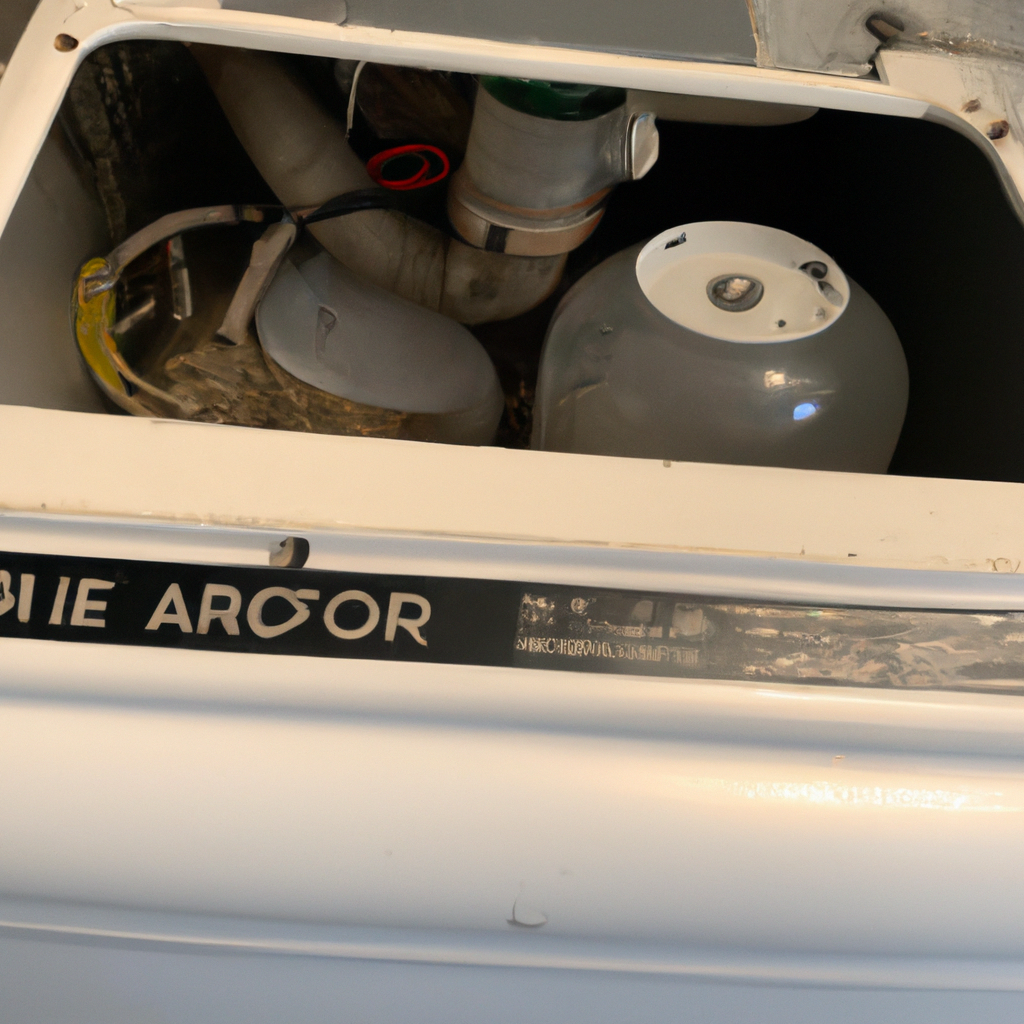The smell of an AC Freon leak is one of those experiences that will stay with you forever. It’s like a wolf in sheep’s clothing, as the pungent odor can sneak up on you without warning.
Freon is an odorless and colorless gas, so it will not have a smell. However, when there is a leak in an air conditioning system, the oil and other chemicals used may give off a smell, such as a burning or chemical odor. If you suspect a Freon leak, it is important to have it checked out by a professional.
An HVAC engineer will tell you that a Freon leak is nothing to sneeze at, as it can cause some serious issues if not addressed quickly and properly. In this article, we’ll take a closer look at what Freon smells like from an AC leak and what can be done to address it.
As the old adage goes, ‘an ounce of prevention is worth a pound of cure’, so understanding what Freon smells like could potentially save you a significant amount of money and frustration in the long run.
Sources Of Freon Leaks
Freon leaks are typically found in air conditioning and refrigeration systems. HVAC systems have components that can be susceptible to leaking seals, which can allow freon to escape into the environment.
Common causes of freon leaks include faulty, worn, or loose connections, cracked lines, valves, and fittings. In addition, incorrect installation of components can also lead to freon leakage.
In order to identify and repair a freon leak, it is important to understand the source of the leak and the characteristics of the odor associated with it.
Freon is an odorless gas so any smell associated with a leak must be attributed to another compound.
Knowing these characteristics can help narrow down where a leak may originate from within an HVAC system.
The next section will discuss the characteristics of the odor associated with a freon leak and how they can help identify its source. Understanding these distinctive odors can aid in pinpointing the exact location of a freon leak quickly and accurately.

Characteristics Of Freon Odor
Freon is a chemical compound used in air conditioning units as a refrigerant.
It is odorless and colorless under normal circumstances, but if there is a leak, it can cause an unpleasant smell to fill the air.
The characteristics of the freon odor vary depending on its concentration and other factors.
Typically, when freon gas is present, it has a sweet and musty smell that can be detected from a far distance. The intensity of the odor varies from light to strong depending on how much freon has leaked.
It may also have an ammonia-like or chloroform-like scent due to its chemical make-up.
The following are some common characteristics of the freon odor:
- Sweet and Musty Smell: This is usually described as a sweet or pungent smell.
- Chemical Smell: This chemical odor can range from mild to strong depending on its concentration in the air.
- Ammonia-Like Scent: When there is a high concentration of freon in the air, it may have an ammonia-like scent due to its composition.
- Chloroform-Like Scent: This is often described as having an earthy or metallic scent that can be overpowering at times.
Given these characteristics, it’s important to be aware that any leakage of freon gas should be taken seriously as it may have serious health implications if inhaled for prolonged periods of time.
Health Implications From Inhaling Freon Gas
The impact of a Freon gas leak on human health can be devastating.
Inhaling the gas can lead to a range of health risks, from mild respiratory issues to severe air contamination.
As such, it is important for HVAC engineers to understand the potential consequences of chemical exposure from freon inhalation.
Freon is known as an odorless and colorless refrigerant, making it difficult to detect a leak without the appropriate tools and equipment. Inhalation of this gas can cause symptoms such as dizziness, headaches, nausea and difficulty breathing.
Long-term exposure may result in long-term health effects, including damage to the central nervous system and organs such as the lungs and heart. It is also highly flammable when exposed to open flames or spark sources, which can increase the risk of serious injury or death if proper safety precautions are not taken.
Due to these risks, it is essential that HVAC engineers take steps to identify any Freon leaks in order to prevent potential harm to their clients’ health and wellbeing.
Early detection and repair of any Freon leaks are key components for ensuring a safe environment for everyone involved.
Understanding how to detect and fix a Freon leak can help ensure that all necessary safety measures are taken in order to prevent any further harm from potentially occurring.
How To Detect And Fix A Freon Leak
Freon, a chlorofluorocarbon used in air conditioning systems, can leak from an AC unit if there is a breach in the system. Freon has an odor similar to ether or paint thinner, which can alert homeowners of a potential problem.
To properly detect and repair a freon leak, one must be aware of the following techniques:
1. Visual inspection: A trained HVAC technician will inspect the unit for any visible damage or cracks that could lead to a freon leak. This includes checking valves, refrigerant lines, and other components for signs of wear and tear.
2. Pressure testing: This method requires applying pressure to the system and seeing how it responds. If there is a decrease in pressure over time, it may indicate a freon leak. The technician will use specialized equipment to measure the pressure levels throughout the system and determine where the leak might be located.
3. Leak detector: A handheld device can help detect leaks within the system by emitting an audible sound when it comes into contact with freon gas. This method allows technicians to pinpoint exactly where the leak is coming from so they can make appropriate repairs quickly and efficiently.
4. Refrigerant recharge: Once the source of the leak has been identified, it must be repaired before recharging the system with fresh refrigerant gas. The technician will use specialized tools to seal any cracks or holes before adding new refrigerant gas back into the system, ensuring that it runs efficiently once again.
By following these steps, homeowners can rest assured knowing their AC unit is running optimally without any potential problems related to freon leakage or other issues associated with HVAC systems. With proper maintenance and regular inspections from an experienced technician, homeowners can reduce their chances of experiencing costly repairs due to undetected AC leaks caused by freon leakage in their home’s air conditioning system
Conclusion
Freon is a critical component of an HVAC system, and plays an important role in controlling the indoor temperature.
It is essential to understand the characteristics of freon odor, especially when there is a leak.
Freon gas has a distinct smell that can be difficult to detect but can be hazardous if inhaled over a long period of time.
Detecting and fixing a freon leak requires special attention and expertise, as it can be dangerous for both health and environment.
The odor of freon gas from an AC leak symbolizes the importance of preventive measures to maintain a safe and healthy environment inside the house.
The smell serves as an indication that something is not right with the system, and needs to be addressed immediately.
Moreover, it represents the potential danger posed by freon gas if left unchecked or ignored.
Overall, detecting and fixing a freon leak should not be taken lightly as it can have serious health implications for people living in the household. Taking necessary precautions like regular inspections and maintenance are essential for avoiding any such problem in future.
Qualified HVAC engineers should always be consulted to ensure proper installation, functioning, and maintenance of AC systems containing freon gas.




